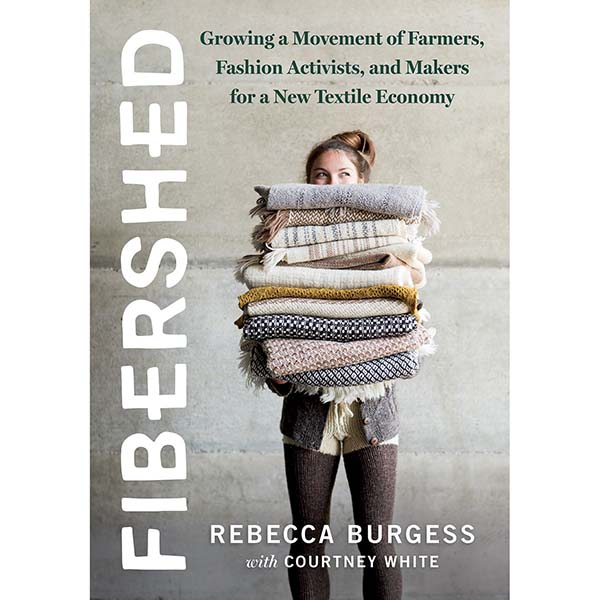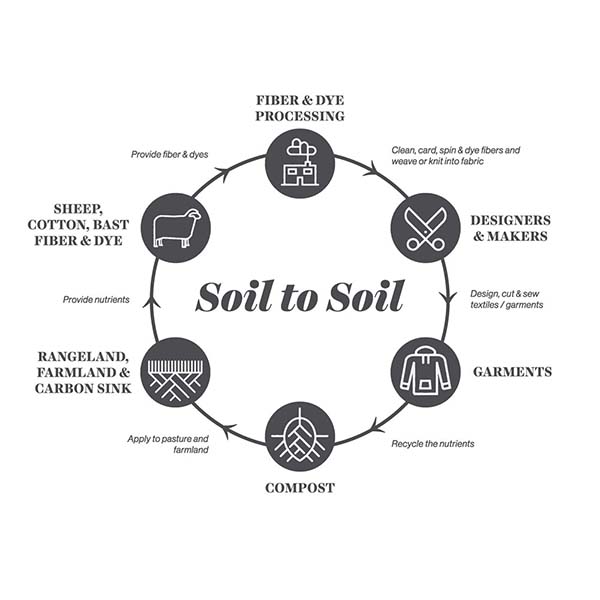Typically Ships in 1 - 3 Days
Fibershed
Couldn't load pickup availability
Fibershed: Growing a Movement of Farmers, Fashion Activists, and Makers for a New Textile Economy
Authors: Rebecca Burgess and Courtney White
There is a major disconnect between what we wear and our knowledge of its impact on land, air, water, labor, and human health. Even those who value access to safe, local, nutritious food have largely overlooked the production of fiber, dyes, and the chemistry that forms the backbone of modern textile production. While humans are 100 percent reliant on their second skin, it’s common to think little about the biological and human cultural context from which our clothing derives.
Almost a decade ago, weaver and natural dyer Rebecca Burgess developed a project focused on wearing clothing made from fiber grown, woven, and sewn within her bioregion of North Central California. As she began to network with ranchers, farmers, and artisans, she discovered that even in her home community there was ample raw material being grown to support a new regional textile economy with deep roots in climate change prevention and soil restoration. A vision for the future came into focus, combining right livelihoods and a textile system based on economic justice and soil carbon enhancing practices. Burgess saw that we could create viable supply chains of clothing that could become the new standard in a world looking to solve the climate crisis.
In Fibershed, readers will learn how natural plant dyes and fibers such as wool, cotton, hemp, and flax can be grown and processed as part of a scalable, restorative agricultural system. They will also learn about milling and other technical systems needed to make regional textile production possible. Fibershed is a resource for fiber farmers, ranchers, contract grazers, weavers, knitters, slow-fashion entrepreneurs, soil activists, and conscious consumers who want to join or create their own fibershed and topple outdated and toxic systems of exploitation.
Rebecca Burgess is the Executive Director of Fibershed, chair of the board for Carbon Cycle Institute, and the author of Harvesting Color. She is a vocationally trained weaver and natural dyer. She has over a decade of experience writing and implementing hands-on curricula that focus on the intersection of restoration ecology and fiber systems. Burgess has built an extensive network of farmers and artisans in the Northern California Fibershed to pilot an innovative fiber systems model at the community scale. Her project has become internationally recognized with over 53 Fibershed communities now in existence.
Courtney White is a former archaeologist and Sierra Club activist who dropped out of the "conflict industry" to cofound the Quivira Coalition, a nonprofit conservation organization dedicated to building a radical center among ranchers, conservationists, and public land managers around practices that improve resilience in Western working landscapes. In 2005, Wendell Berry included Courtney's essay "The Working Wilderness" in his collection titled The Way of Ignorance. He is the author of Revolution on the Range; Grass, Soil, Hope; The Age of Consequences; and Two Percent Solutions for the Planet; and coauthor of Fibershed with Rebecca Burgess. He is also the author of The Sun, a mystery novel set on a working cattle ranch in northern New Mexico. He lives in Santa Fe.
Product Details
- Paperback: 288 pages
- Publisher: Chelsea Green Publishing; Illustrated edition (November 19, 2019)
- Language: English
- ISBN-10: 1603586636
- ISBN-13: 9781603586634
- Dimensions: 7.0 x 0.6 x 10.0 inches




